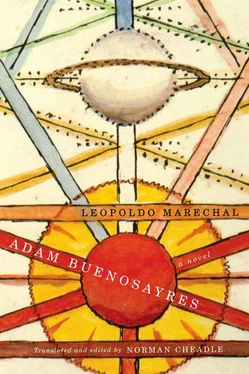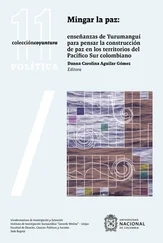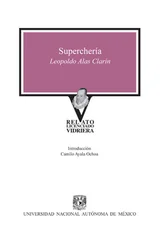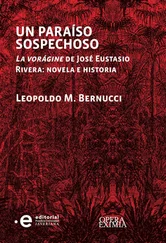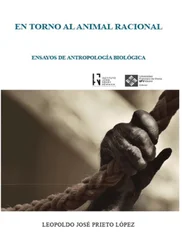Whether it was because he felt flattered by the heroic mode the storyteller had cast him in, or for some other reason, the fact was that the Grand Orisonist stopped glowering and condescended to stretch his lips in a gesture that could pass for a smile:
— If the Vice’s madness were not already a proven fact, he said in the voice of a man without rancour, this carnivalesque tale would clearly clinch it.
— My tale is history, responded Schultz, even if it’s tricked out in a sailor suit.
— How did the battle end? I inquired.
— How do you think? Schultz answered me. The Orisonist hosts ended up melting like frost in sunshine. Some of them, touched by grace, converted to the correct doctrine; others shed their harshness and angelic airs when they crossed the threshold of Holy Matrimony.
— And the Vice?
Here the astrologer wrapped himself in solemnity:
— His merit was great, no doubt. For an angel snatched him from life and placed him in the southern sky in the form of a constellation called Del Vice ; its stars, alpha, beta, and gamma, replicate the glorious wounds he sustained in battle.
An uncontainable guffaw burst out of the Grand Orisonist:
— The Vice? he laughed. A theologian whose genius never set sail if it wasn’t in an ocean of beer! If the booths at the Jousten Bar could talk!
— So what? retorted Schultz. After battle, didn’t he have the right to assuage his thirst with the hydromels of Quilmes and Río Segundo? 108Certainly, being a metaphysician, the Vice was not a man to deny the claims of thirst. Because thirst, though an ontological privation, is the potential force of being; as such, it can pass from the condition of potentiality to actuality through being-in-act. And anyway, what quantities of wisdom did he not lavish when he had a half-litre of suds before him?
— Sure, admitted the Grand Orisonist. For example, when he used to identify a person by asking what the individual would be if he or she was a toilet article, an element, a food, or a piece of furniture.
— Great God! shot back the astrologer, stung by the irony. Are we living among Quakers? Is the mind not allowed to frolic for even a moment’s rest, after labouring deep in abstract thought?
But the Grand Orisonist was no longer listening. In a sudden panic, he consulted his watch (a venerable eighteenth-century Swiss artifact), looked nervously over at the merry-go-round, and with nary a word of farewell ran off toward the artifact. We watched as he climbed back aboard with a touching vehemence.
When we turned our backs on the Orisonists, a new expression of concern on Schultz’s face caused me some alarm.
— There’s still more to see in this circle, he declared at last. But I’ll spare you the rest, since getting out of here will be quite tricky, especially for you.
— For me? What have I got to do with this circle of hell?
— It won’t do to forget about the Potentials, Schultz answered me enigmatically.
I followed him, feeling both angry and afraid. Given the tyranny of the rope, by now making my fingers cramp up, and especially the interminably howling winds, I was beginning to hate the fifth circle and its conceited creator. So I was greatly relieved when, after a short walk, I saw, looming in the light or fog that languished in the last corner of this part of hell, not only the wall but also the exit gate, generously open and seeming to invite the easiest of escapes. In my satisfaction, I laughed inwardly at the astrologer, fancying now that he’d purposely spun fears and worries in this tangled web of incident for the purpose of catching my interest or jolting me, according to the case. Distracted as I was by these speculations, while Schultz was lost in his own thoughts, we approached once again the race-course of the wind, which as I said earlier ran very close to the wall. We crossed it in a single hop, for the waxing drumbeat of heels on the ground warned us of the proximity of the wind that held sway in that final 90-degree sector of the circle. Without looking back, we made for the open gate, Schultz now very grave, and I more confident than ever. But in front of the doorway, and blocking access to it, a crowd of human quasi-figures suddenly came into view.
I say quasi-figures, because their contours were sparsely sketched in colourless, translucent material, like virgin celluloid. Thanks to their extreme lightness, the quasi-figures maintained a fluctuating equilibrium in the wind: they bobbed about in all directions but didn’t fall; anchored to a thick, round, leaden base, they were similar to those small, lightweight rag dolls children play with. Curious and smiling, I stopped before the battalion of toys guarding the portal. No doubt they were the Potentials mentioned by the astrologer. Seeing them now, I thought it was clear sailing ahead and imagined how easy it was going to be to get through a thicket of celluloid floppy-dolls. “No doubt about it — I said to myself — Schultz is a flake.” But when I got up close to the quasi-men and recognized their sparsely sketched faces or the simulacra of their jerky voices already boldly cursing me, I simultaneously felt a chill run down my spine and my face flush hot. Clairvoyant reader, rare is the man who, safe in the intimacy of his soul, has not invented for himself wild destinies, impossible adventures, outrageous poses, and absurd personifications. Even under torture, he would not dare confess to these fantasies forged in the inviolable workshop of daydream. Well now, in the celluloid homunculi now blocking my way, I was seeing, patently incarnate, the craziest dreams ever woven on the secret looms of my imagination. Now materially concrete, they looked like extravagant foetuses, plastic abominations, the contrivances of some demon. And as I identified them one by one, I felt a cold sweat of shame bathing me, as if I were being stripped naked in the street before a thousand mocking eyes.
Schultz was the first to confront the line of defence. Clenching his teeth, he barged his way through the celluloid homunculi fairly easily, though not completely unscathed. Once on the other side, he called over a few words of encouragement:
— Don’t be afraid of them! They’re the Potentials.
I closed my eyes and charged in turn, putting heart and soul into it. The homunculi bobbed and swayed, but on recovering their balance they pushed me back with mechanical violence, and I suddenly found myself sitting ignominiously on the ground. The astrologer was shouting and urging me on:
— Not like that! You have to look straight at them!
Armed with this piece of belated advice, I got myself up and charged again, but this time with less brutality and keeping my wits about me. At the first row of floppy-dolls, one put his gigantic thorax in my way, protesting in a piteous tone characteristic — I later realized — of all Potentials:
— Stop shoving! he whined. We’re not in the ring anymore!
I looked straight at him, just as Schultz had told me to do. Recognizing him with a start, my teeth began to chatter. He was sort of a gorilla — muscles bulging out all over the place — and his lantern jaw, crushed nose, and cauliflower ears suggested the idea of a pugilist pummelled in a hundred combats.
— I woulda bin the young boxer Edison Anabaruse, 109the Wild Panther of Villa Crespo, the pugilist continued whining. Gimme that hunnerd grand in prize money I woulda won in Madison Square Gardens in New York when I beat, or at least woulda beat, Jack Dempsey in the second round in one whale of a match!
— Easy, now, easy does it! I said, petrified.
But Edison Anabaruse wasn’t calming down:
— Five-hunnerd thousand spectators in the stadium! he moaned plaintively. The crowd went wild when I landed him one smack on the jaw and sent Jack flyin’ through the ropes to ringside. The Yanks shoutin’ like crazy; the glare of spotlights in my charcoal-blackened eyes — and the referee forgot to count!… But I didn’t lose my cool. I remembered Firpo. 110And when Jack climbed back in the ring, completely groggy…
Читать дальше
